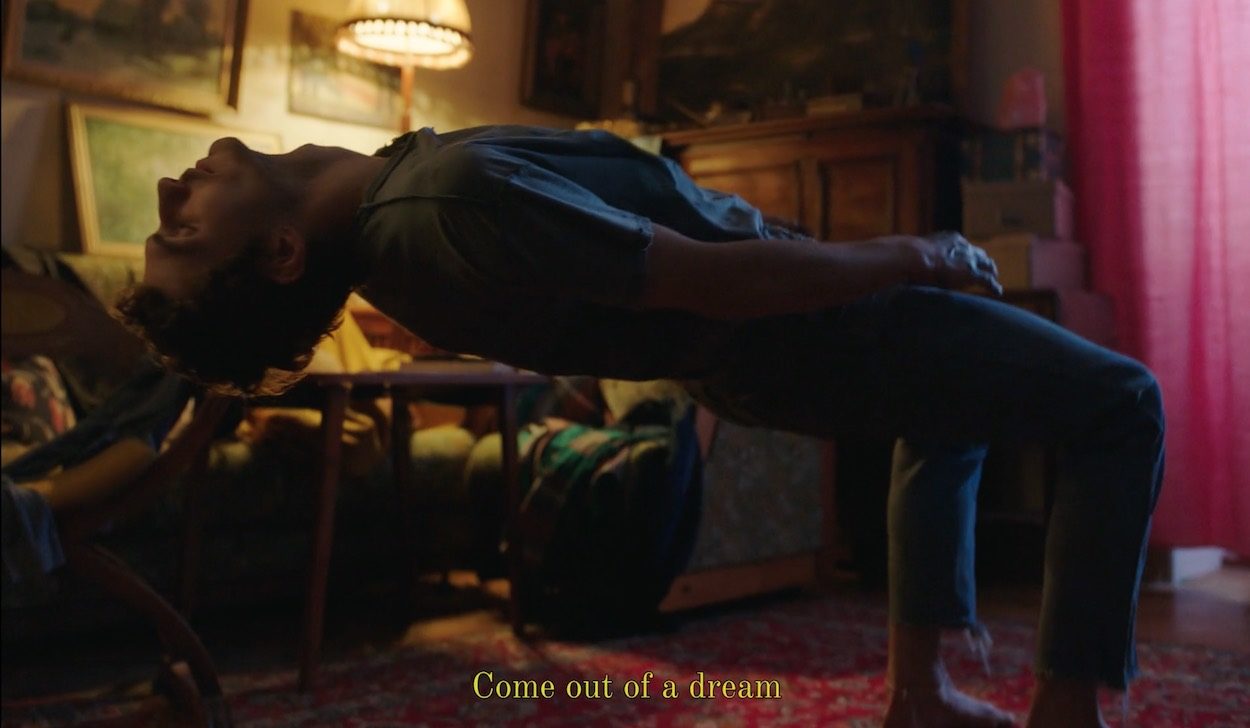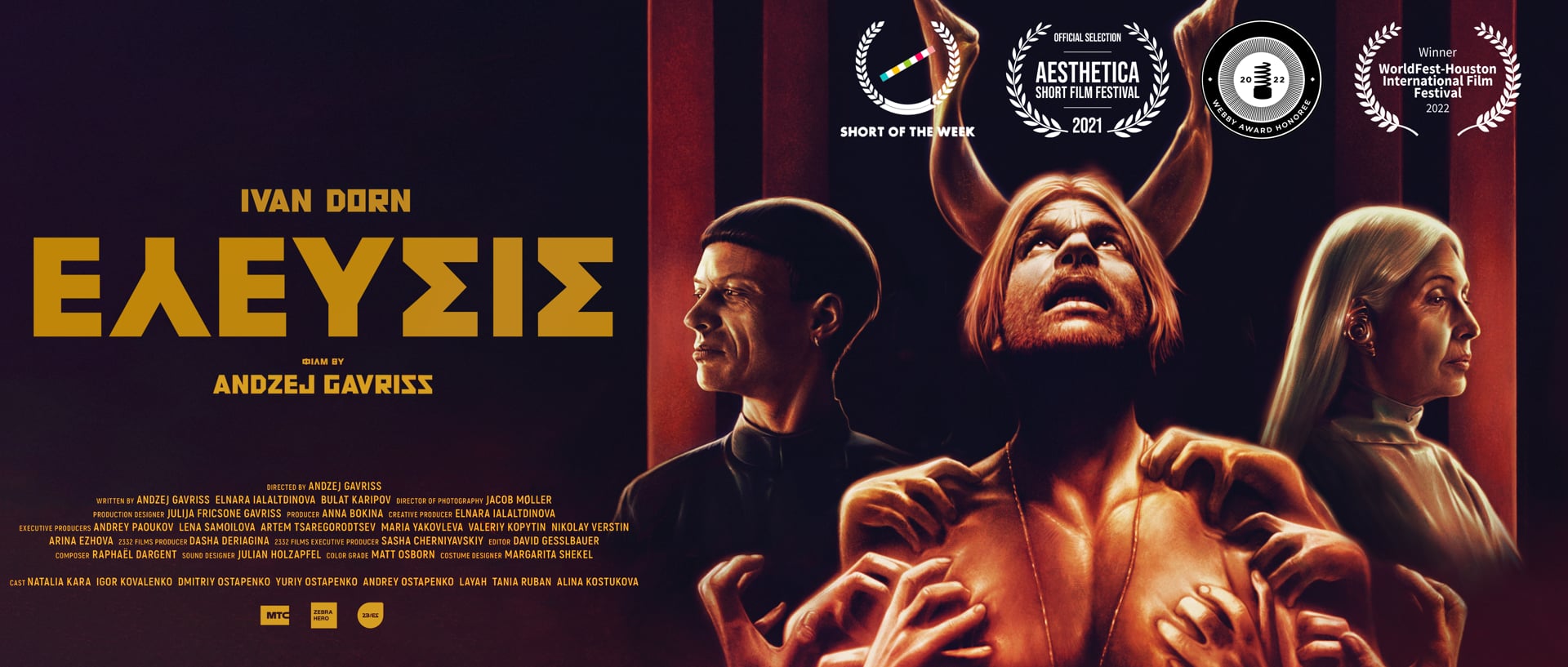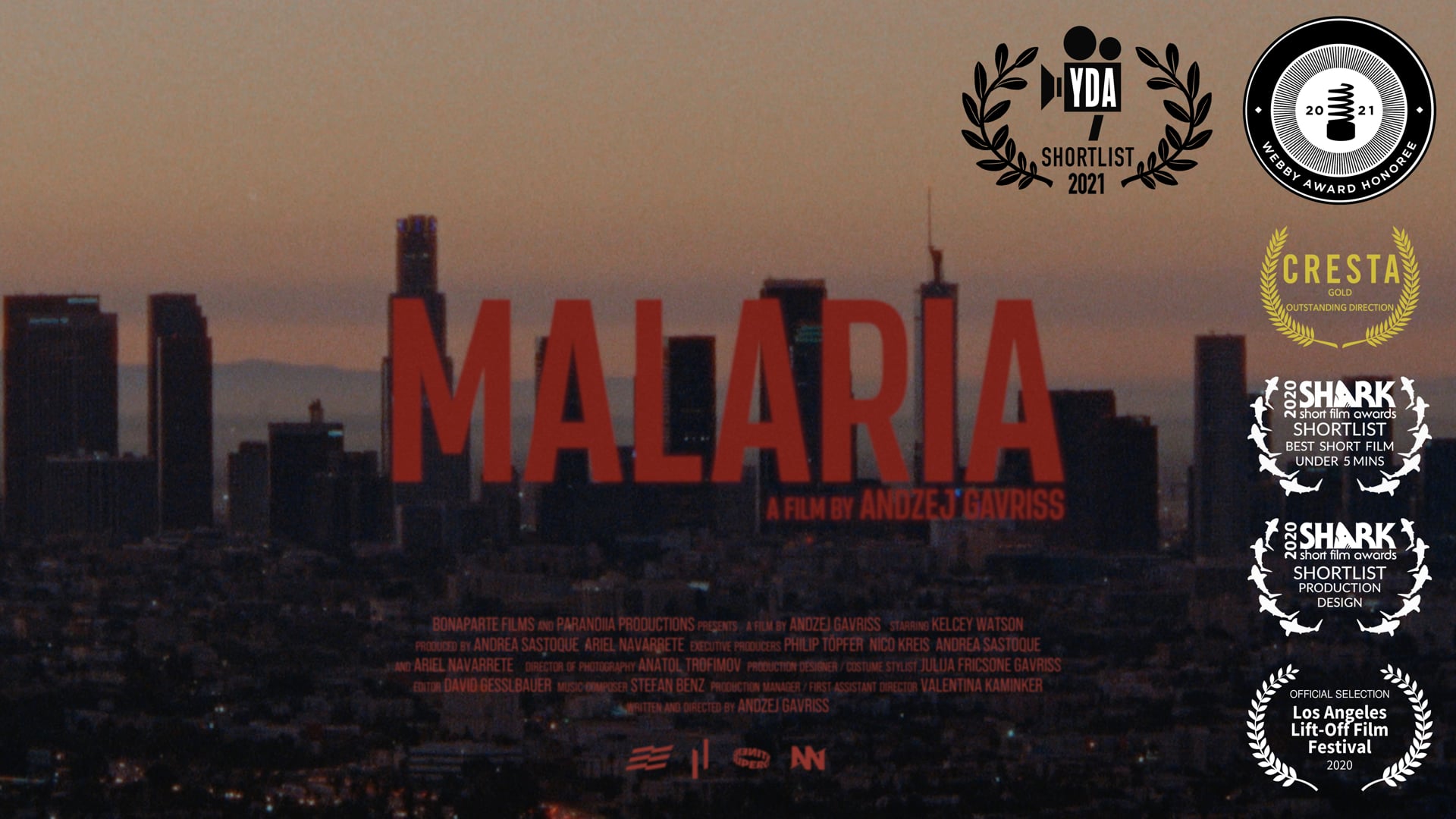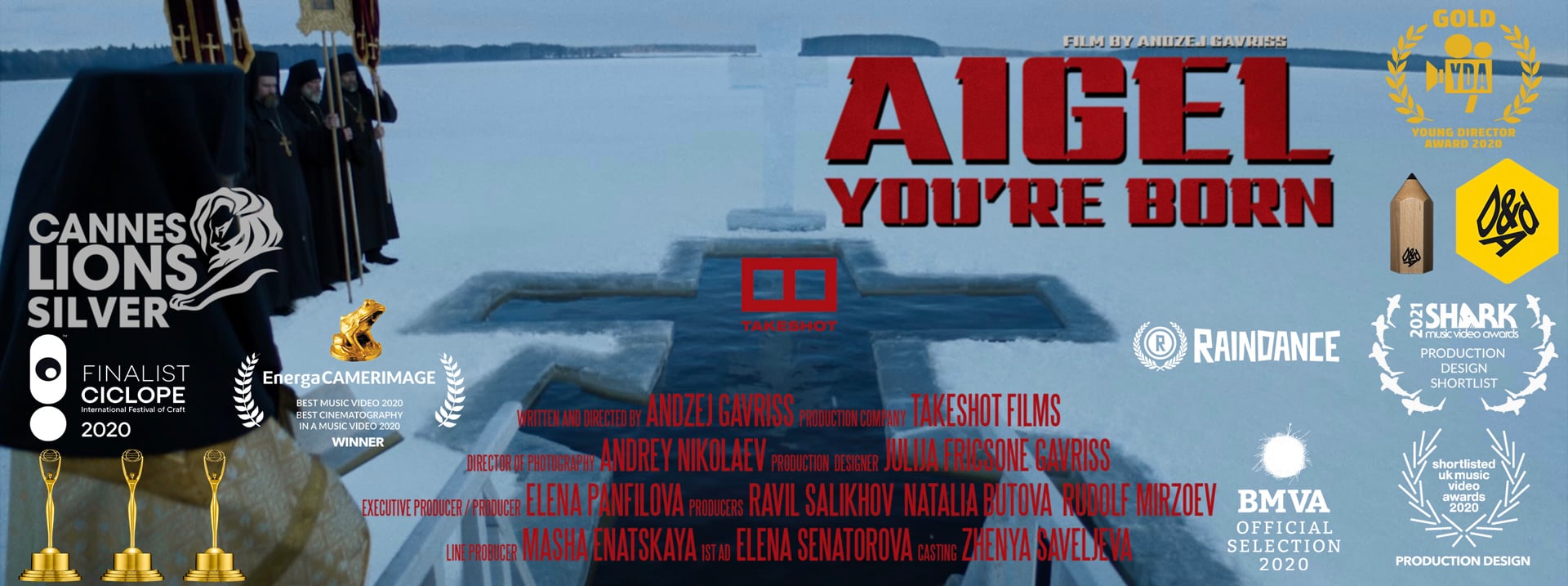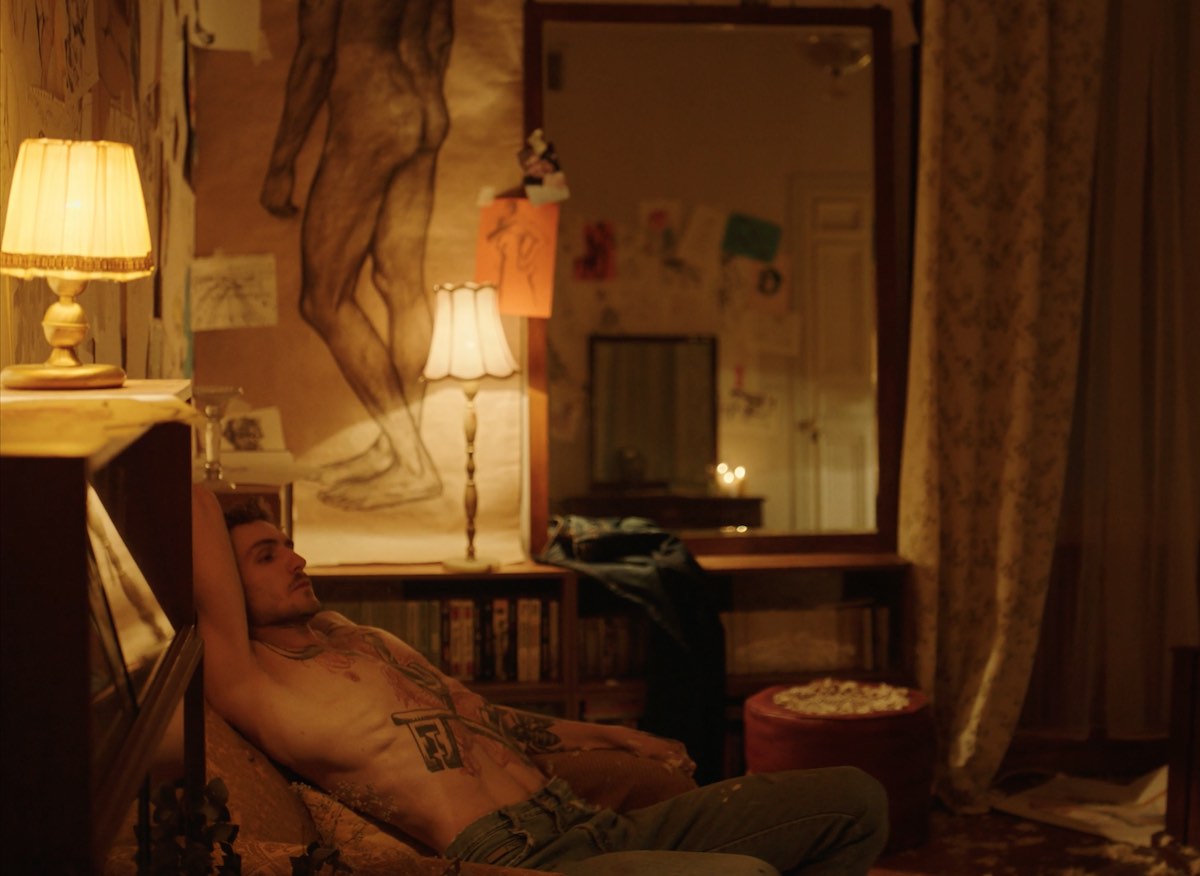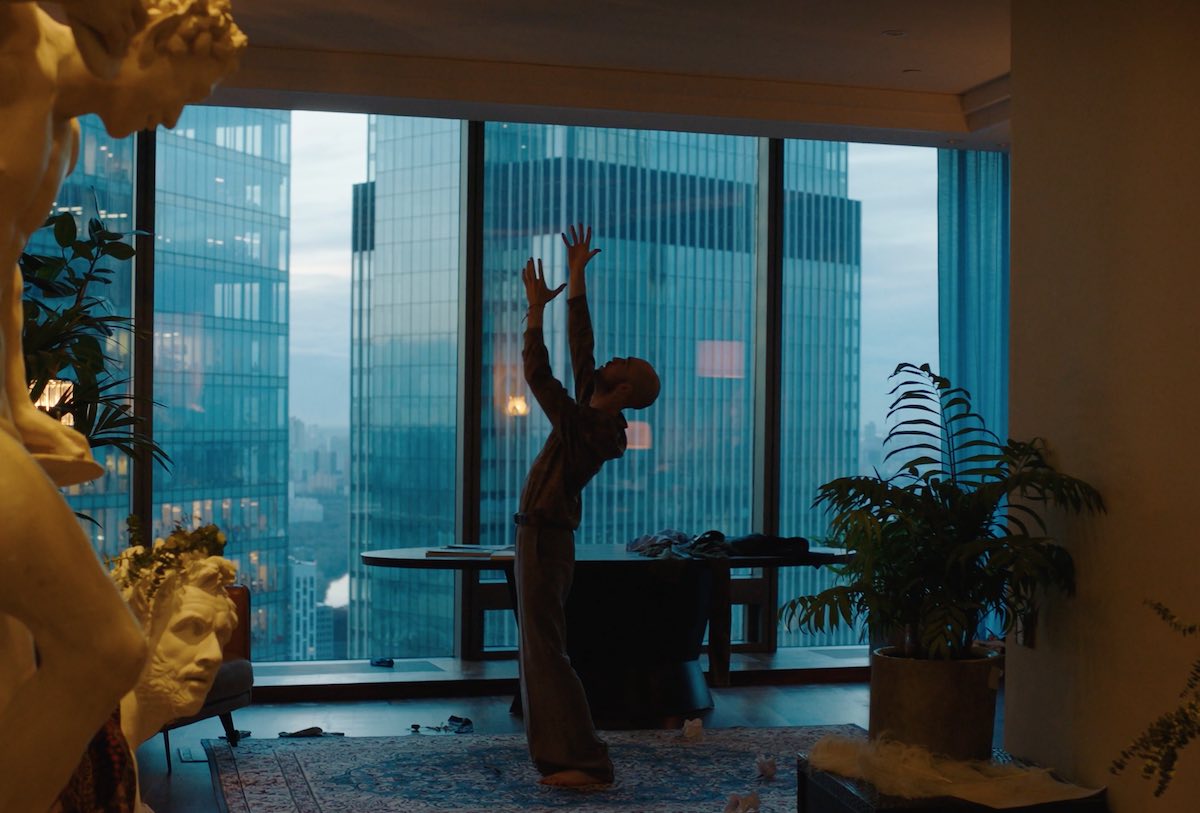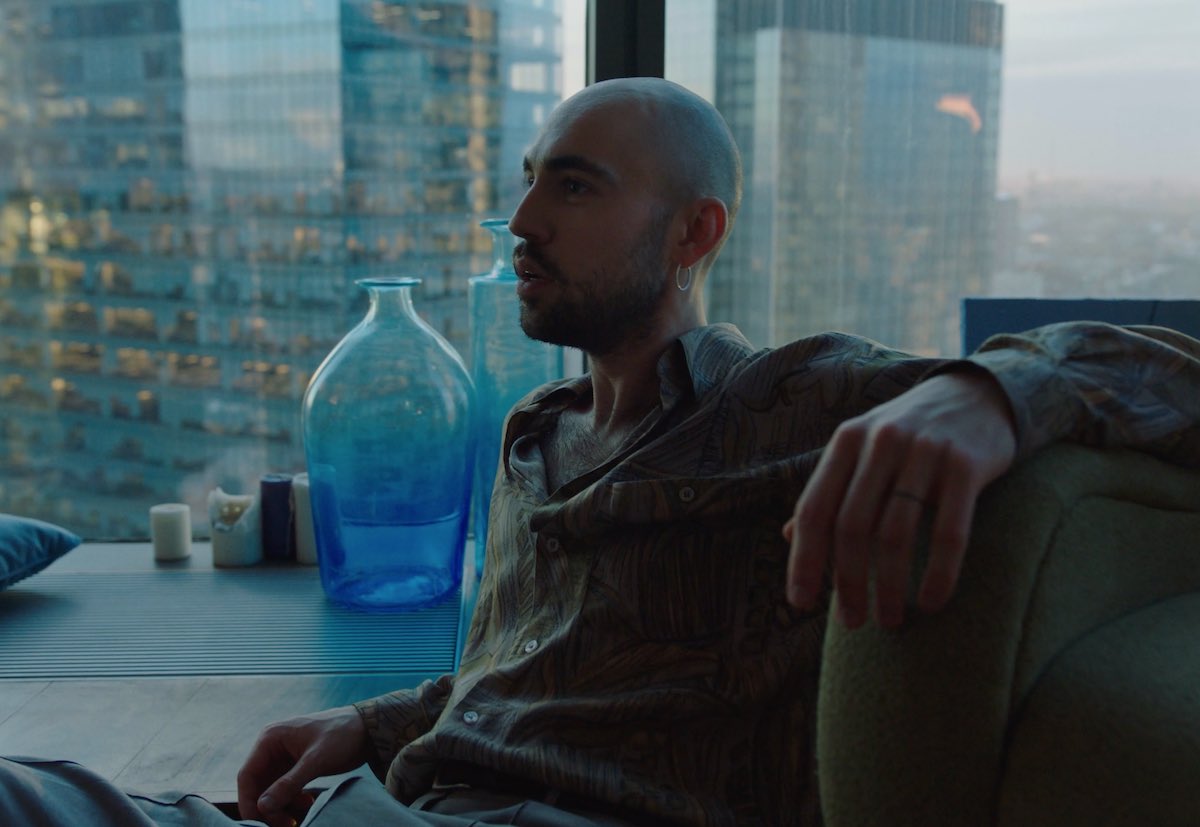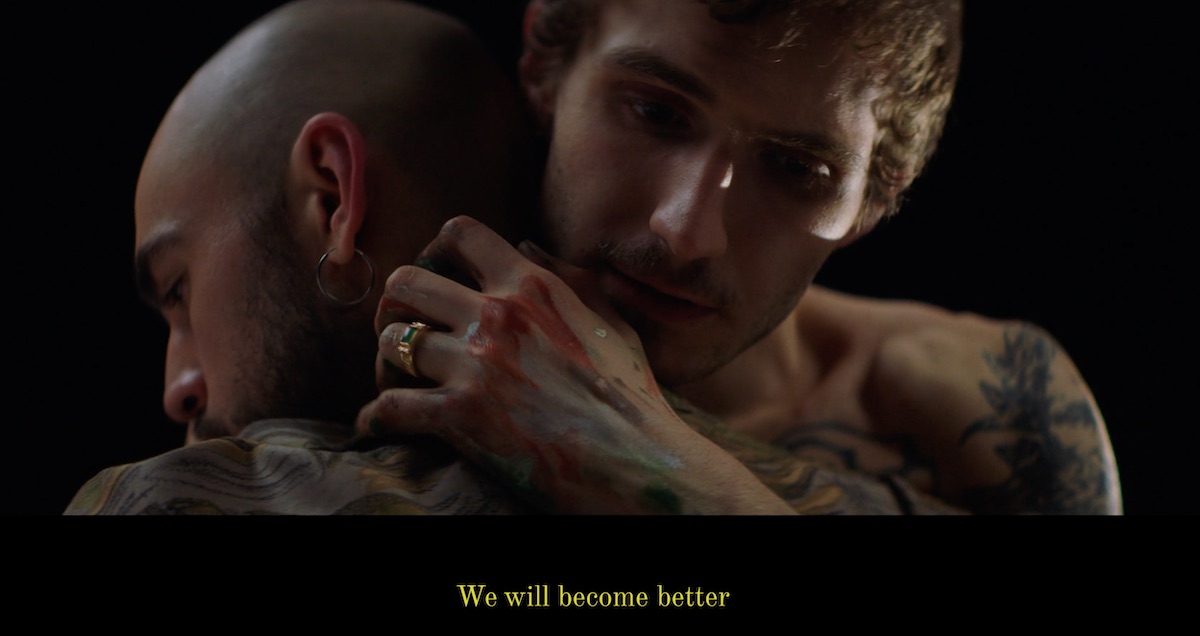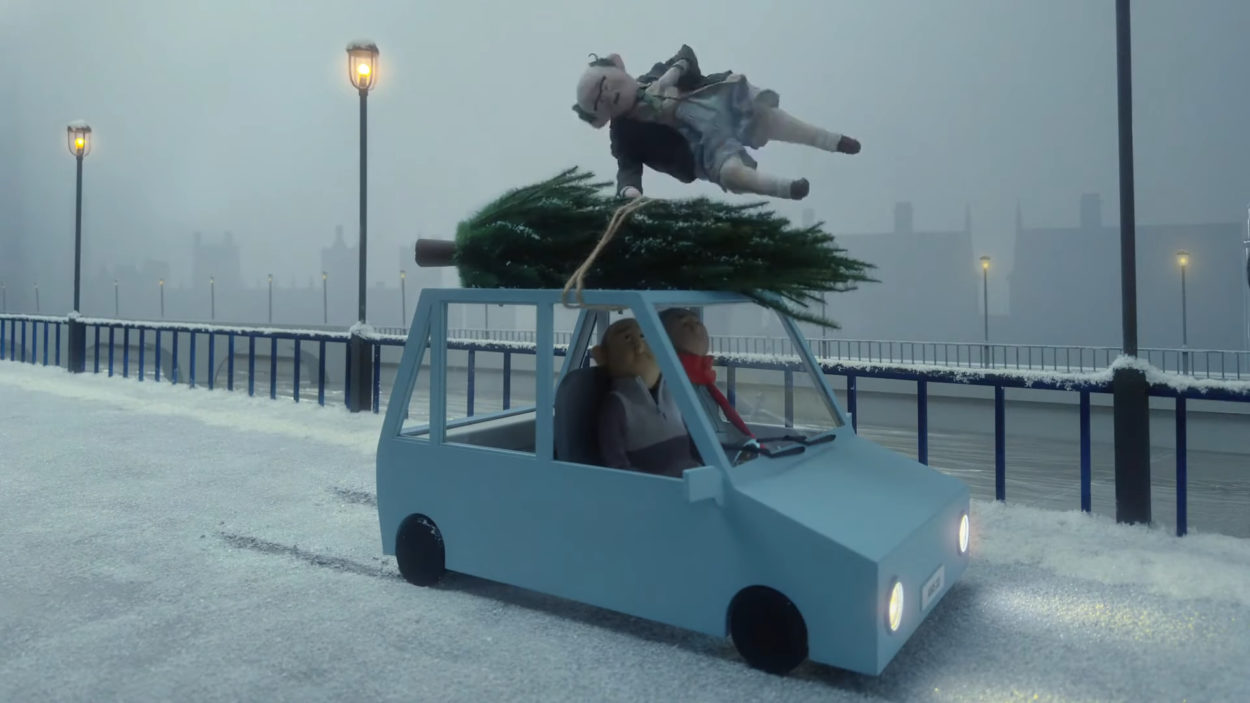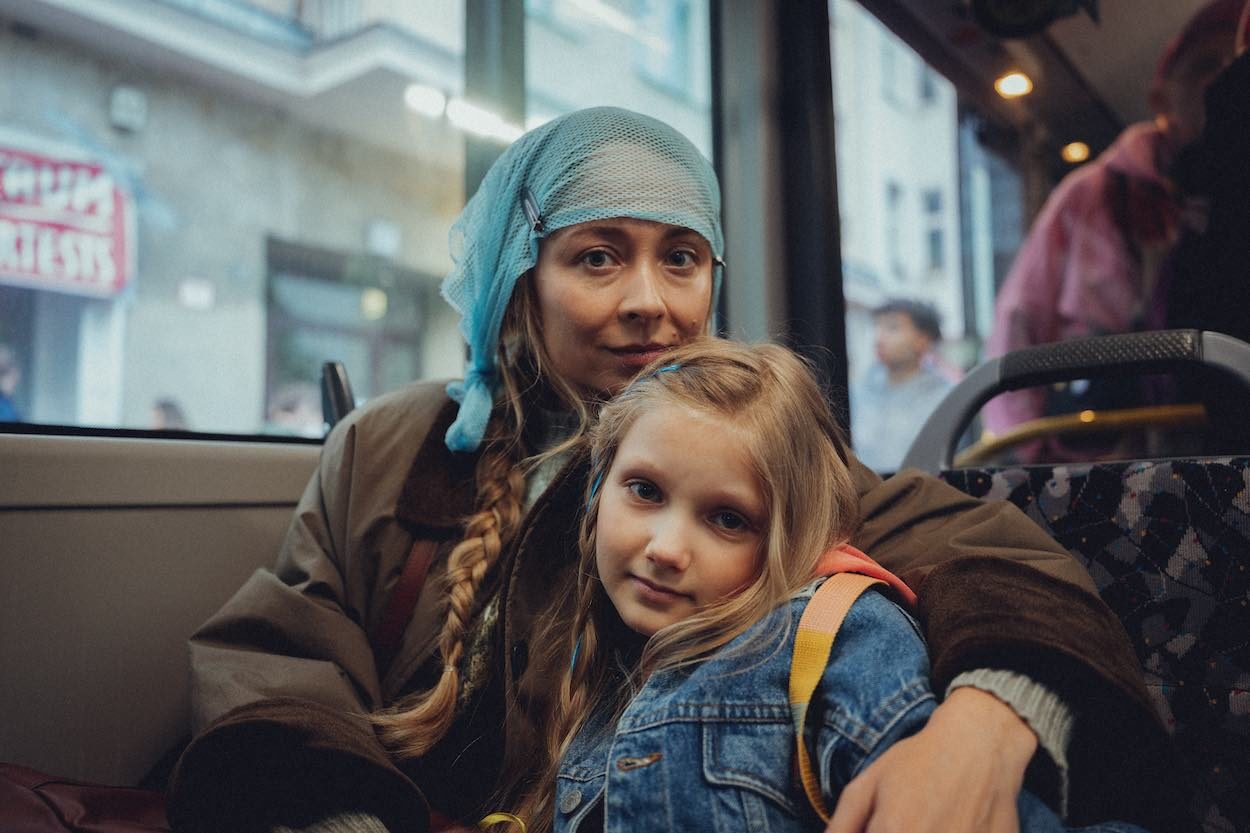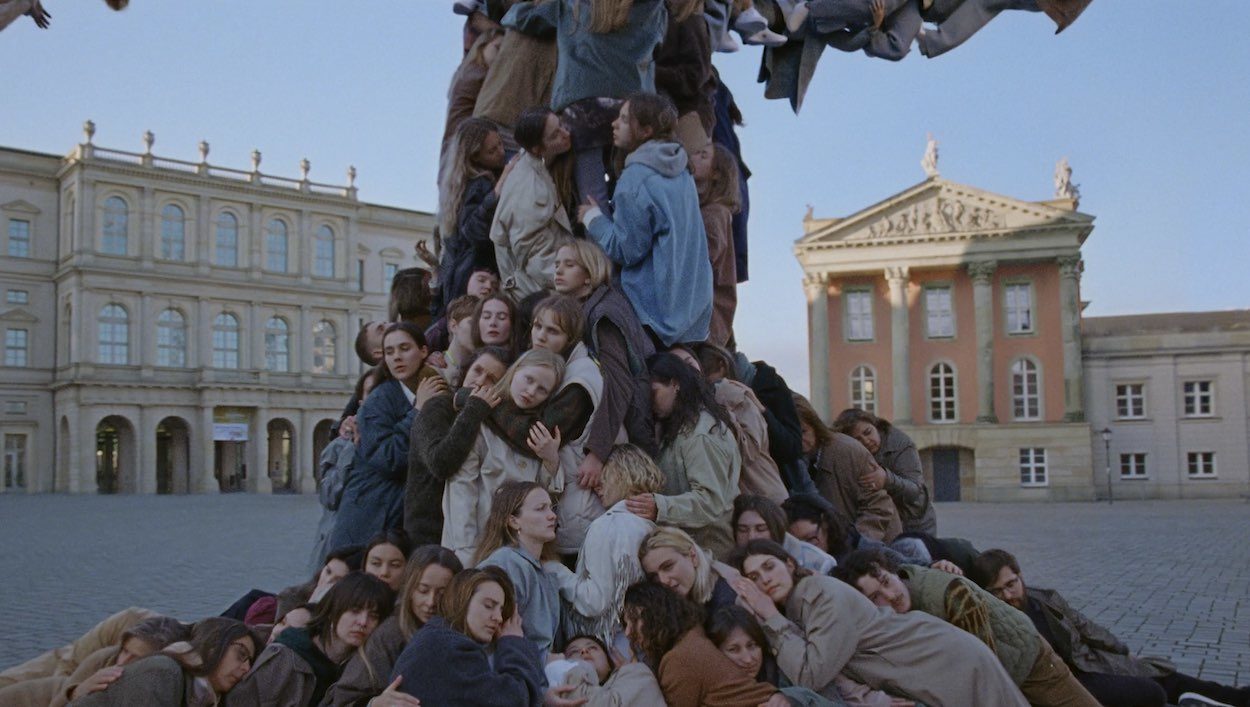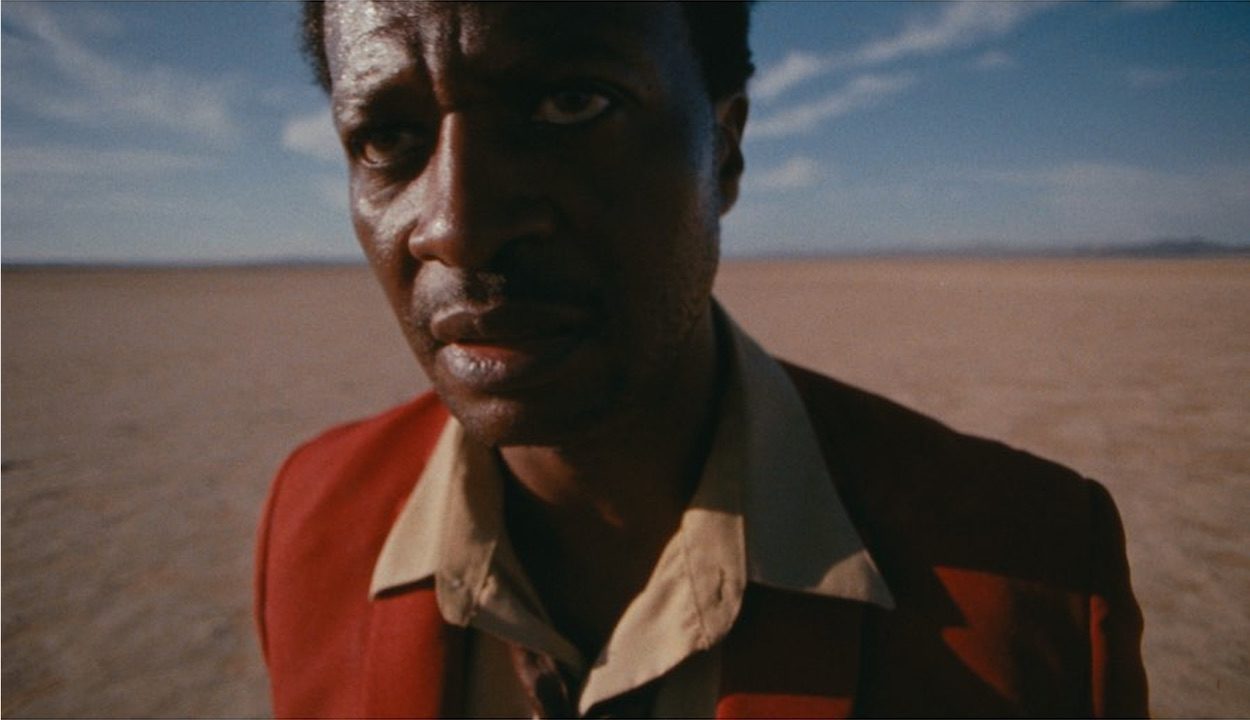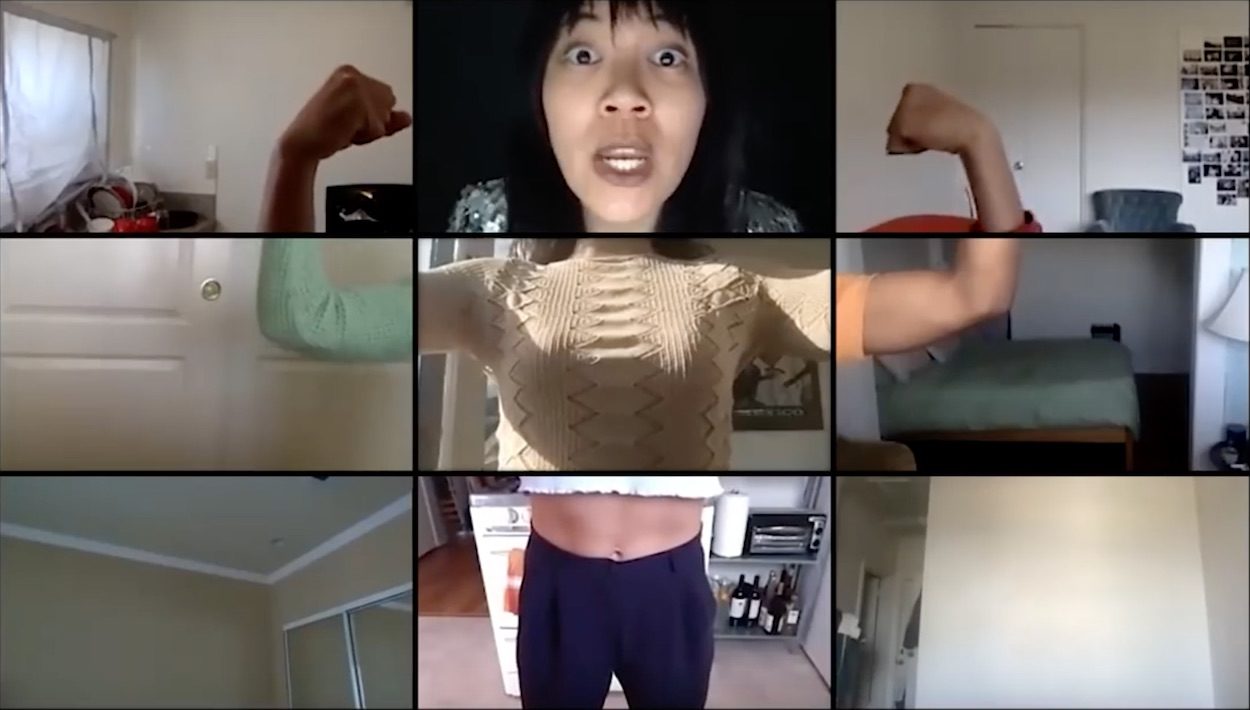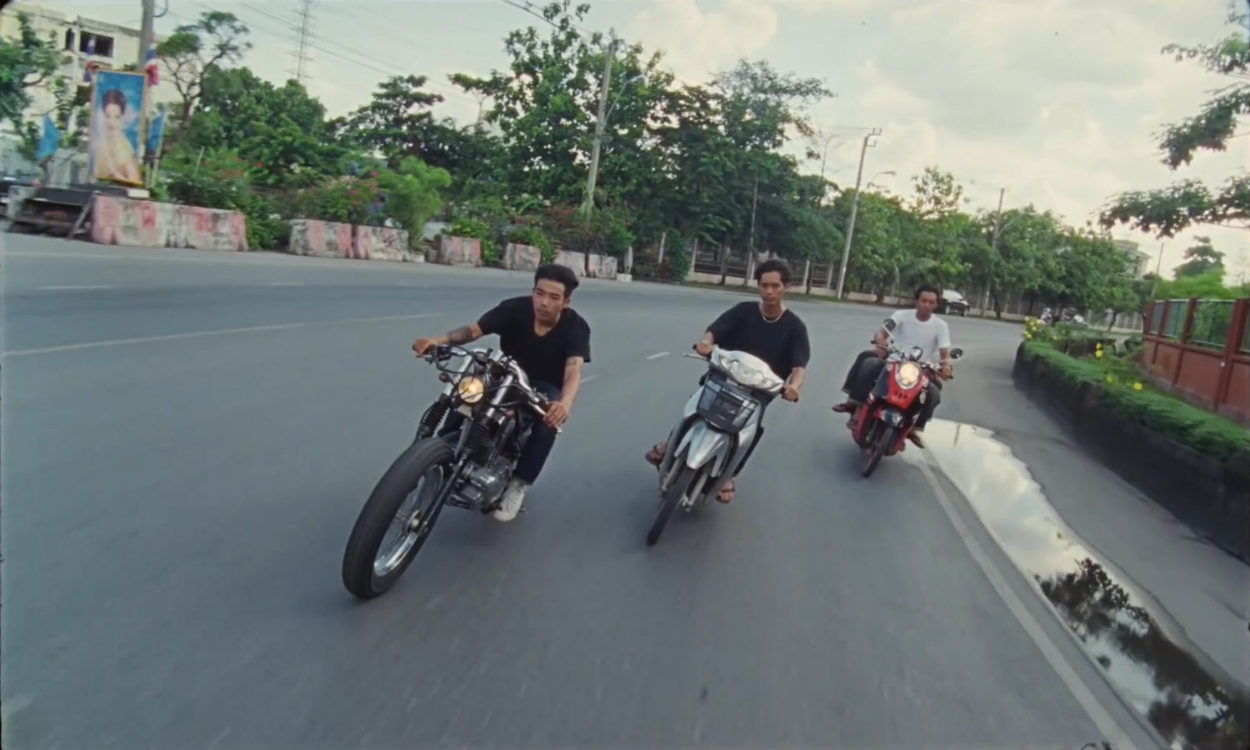All stills from Andzej Gavriss’ latest film, We Will Become Better
You’re originally from Riga, Latvia. Tell us a bit about your background, and how your cultural roots have influenced and informed your approach as a filmmaker.
This is probably not the most patriotic thing to say, but Ito be honest, I was bored to death with the environment that I grew up in. The post-Soviet blockhouses have been picked up by pop culture over the last few years, but music video and commercial directors over-romanticized the coming of age culture in that surrounding. There is no art value in typical post-Soviet housing. The Soviet government designed it as a temporary place for people to live, the buildings were supposed to be demolished after 40 years and then rebuilt into something more pleasant for living. The overall design was done in the most productive and efficient way possible for people to stay in the system. Work, Eat, Sleep, Die – no wonder alcohol played a massive part in Soviet countries.
All of this made me escape reality by creating my own imaginary worlds. For my first short film, which I made when I was 13, I used puppetry to capture an invisible skater’s journey. I also improvised with stop-motion and building small sets out of cardboard. Once I got the opportunity to move out of the country, I didn’t think twice.
A year ago, Covid-19 gave me an unexpected chance to reunite with my homeland, get a fresh look into local customs and re-evaluate natural landscapes that years ago had never inspired me. Many things have got better for kids to have a quality childhood, the government has built lots skateparks and other sports facilities all around the town, which are good for the kids to stay out of drinking alcohol and doing drugs. In the 90s my friends and I used to skate at abandoned Soviet factories, building ramps out of furniture and garbage, but it was always a good exercise for imagination. Now Latvia is a totally different place, and I am proud of the progress that it’s making. Overall, it’s a nice country to visit – peaceful and quiet, with its organic food, farmers’ culture and traditions. I don’t want to steal the tour guides’ jobs, so I’ll leave the rest of the details up to them.
Much of your work is characterised by high production values, meticulously planned sets and an attention to detail that spans casting, colour palette, set design and more. What have been your most challenging projects from a production point of view?
Eleusis was the most challenging film that I had a chance to direct so far. We had an OK budget… but not a budget for what we ended up shooting. The whole project was basically built on favours. I decided to storyboard the whole film to have a perfect picture of what exactly we were dealing with and ended up with 156 frames that gave me, in total, a half hour film that we sent to my producer Dasha in Kyiv. My initial thoughts were: “OK, we only have money for two days and it’s definitely not enough.” After we broke the storyboard down with the team, we realised that we needed six days to do everything. I didn’t want to cut the scenes, so I said, give me three days and I’ll try to make it work. I took every single frame of the film and edited it to see what worked, then we did the schedule. So everything was already pre-shot before the rehearsals.
I was watching this Coen Brothers interview, where they basically storyboard everything before they go on set. Then they don’t even look at the storyboard anymore. Every department knows exactly what they are doing, which gives you more time to work with actors. I also wrote the backstories for every actor, even the triplets, because if you don’t do that, they just look lost in these weird costumes.
It was a challenging shoot, but the guys in Ukraine did a lot of heavy lifting. It was a heavyweight film, especially with the budget we had, so I’m really thankful to 2332 films.
Your latest short, We Will Become Better, aims to challenge Russia’s mainstream anti-LGBTQIA+ attitudes through a delicate and beautiful narrative of forbidden love. What drew you to the project and were you worried at any point about the personal ramifications of making such a politically charged film?
I grew up in ‘90s Latvia with the complete absence of sex education, where the topic of same-sex relationships was only a subject for gossip, insults and often blackmail and violence.
Anyone who lived in that post-Soviet space knows how much society demonized the LGBTQIA+ community. The society unreasonably imposed a stigma of clichés, stereotypes and aggression towards people who just want to love each other without hiding their feelings, go to work without wearing a heterosexual mask, just hold hands in the park without fear of getting physically injured.
I wanted to break the clichés and talk about pure love. And if the Russian audience feels for the couple, hopefully that can change their minds.
One of the high points of WWBB is the incredible choreography, where the two lovers dance with their absent partners in a metaphor for separation. We also love the dance sequences in ELEUSIS, your horror short about a sanatorium for burned-out creatives. Do you work with a particular choreographer?
Konstantin Koval is amazing! He is the guy who decided to take a bus from Moscow to Kiev in the middle of the second Covid lockdown to work with me on Eleusis. He has one of the most passionate souls I have ever experienced, watching him work is such a pleasure. He is so in control with his dancers, yet gives them just enough space to create together. I think we have this neuro-link between us as we don’t need to talk much, we just understand each other.
My initial thought was that the actor’s performance in a choreography driven film should be captured in a spontaneous way. It felt like we needed to have a lot of improvised moments on set, let them live as Terrence Malick and Wong Kar Wai do in their movies. It felt like creating a storyboard would put the dancers and choreographer in a box and destroy the chemistry between the characters and that’s the last thing I wanted to happen.
After playing with the script inside my head for a few weeks, visualising scenes, blocking, imagining the acting, and framing gave me a really good idea of where I want to take the visual and emotional part of the film. I just could not stop thinking about it, I was totally in love with the visuals and I wanted the whole crew to see them, so at some point I decided to put everything on paper.
Developing the storyboard gave me the idea of using 4/3 aspect ratio to help portray the isolation between the actors, and 2.35 aspect ratio for the black void to portray freedom and unity. Also playing with framing and shots on paper gave a good starting point of how to create the feeling of them being separated, yet still together at the same time.
I knew that the film would be controversial for the majority of the Russian audience. All of us wanted this film to be an eye-opener. Starting the film with two men in love would scare a vast homophobic part of the audience. So I decided to immerse the viewer into the film so deep that they would see beyond sexual cliches. I wanted to show two human beings that are in love.
The only way for the Russian orthodox part of the audience to change their mind on the subject is to make them feel. So I created an emotional diagram that looked like this:
We open our film with the dramatic feeling of two people in love being separated. The feeling of despair should evolve into a passionate personal performance where the audience falls in love with the characters. The tenderness of the couple being together gets destroyed by the awareness of this being just an illusion of freedom.
Storyboarding helped a lot in the beginning for everyone to have a visual understanding of where I want to take the film, though in our first rehearsal I said that we need to let go and explore. At the beginning, Konstantin and I wanted to create a chemistry between the dancers. We explained the emotional state of the characters and asked them to improvise. Our DP Andrey Nikolaev shot all the rehearsals on a phone, and I would highlight the parts that I liked. For the first few rehearsals we decided not to separate [the dancers] Max and Nikita, in order to have a good understanding of the choreography we are about to create. There was a great emotional and creative connection between the four of us, all of us were proposing ideas, discussing the characters and their motivation, it was a pure joy built on trust and respect.
After we developed the body language and solid choreography framework, we separated Maxim and Nikita. I decided to step out a little and all of my focus went into shooting and editing rehearsals with the DP. We did rough cuts on the rehearsal, checked what did not work and showed it to the guys. The best thing about this process was trying to figure out the solutions, like all of us were solving the puzzle together.
After a few rehearsals we had a good rough cut, but the problem was that the camera movement, framing and dancers’ movement depended on the space where they would perform. Everything had to be in a perfect sync for us to achieve the effect of Nikita and Max interacting with each other yet being separated. After explaining everything to the producers, we decided to continue rehearsing in the real film locations. We couldn’t rent them for the real rehearsal, so we had to cheat and rehearse during the scout. The amount of time we had on the scout was limited, but somehow we managed to shoot the whole film on a phone. Once the cut was ready, we gathered the main departments and discussed the film.
That approach eliminated a lot of camera moves that we planned to use and simplified the visual language of the film. Because we had to cut from one location to another with smooth camera movements, we shot the whole film on a Steadicam. The camera angles called for a great balance between being visually exciting and uniting two locations so it feels like the actors are dancing in the same space.
What interests you about the supernatural world, which seems to be a recurring motif in your work? Particularly folkloric traditions, such as the Russian Orthodox ice water baptism that brings immortality in You’re Born, or the ancient ritual of drinking bull’s urine that’s used to recharge creativity in ELEUSIS…
At the time when I got into philosophy, Socrates’ shadow concept changed a lot for me. Life is more than what’s in front of our eyes. When I was a kid, I accidentally experienced a psychedelic drug, and saw fractals and human vibrations. It blew me away – I wasn’t the same person after that wild trip.
I’m always looking for answers beyond my understanding of what this world actually is. Most likely, it’s a simulation and I am dying to see how we will evolve as a species with future technologies and what the new reality will look like. We will probably build the reality in the reality, and then someone will shut the door and ask for a check, and we will end up in Dante’s Inferno. Who knows?
Sometimes, looking down at the ground in the forest, you can see how a colony of ants eats a bug that is still alive, and that makes me think that this planet is so brutal in its essence. If you look at the insect kingdom, it’s full of competition for survival, which makes me feel a bit better about losing a pitch for a commercial. This world is one massive tender.
Supernatural ideas and experiences are like one big magnet, and I am a small metal ball that doesn’t know anything about the laws of physics. I am just attached to it, without knowing why.
As well as homophobic culture in Russia, you’ve tackled other important social and cultural issues in your work: in Malaria, for example, you shone a light on the USA’s ‘house-lessness’ crisis. Do you consider yourself a political filmmaker?
I love to be involved in stories that matter, if this is considered to be political filmmaking. I think that the only way to change the world around you is to give people an experience without preaching and judging them on a particular subject. There are so many films that changed the way I think and feel and I am fascinated with this approach to filmmaking.
What other themes do you hope to explore in future projects – commercial or personal?
I am a proud vegan, and I try to live a sustainable life, recycling, not using much plastic, buying only second hand clothes, etc. Anything in that field would be a gift to my imagination.
Interview by Selena Schleh
Halal website
Andzej Gavriss website
